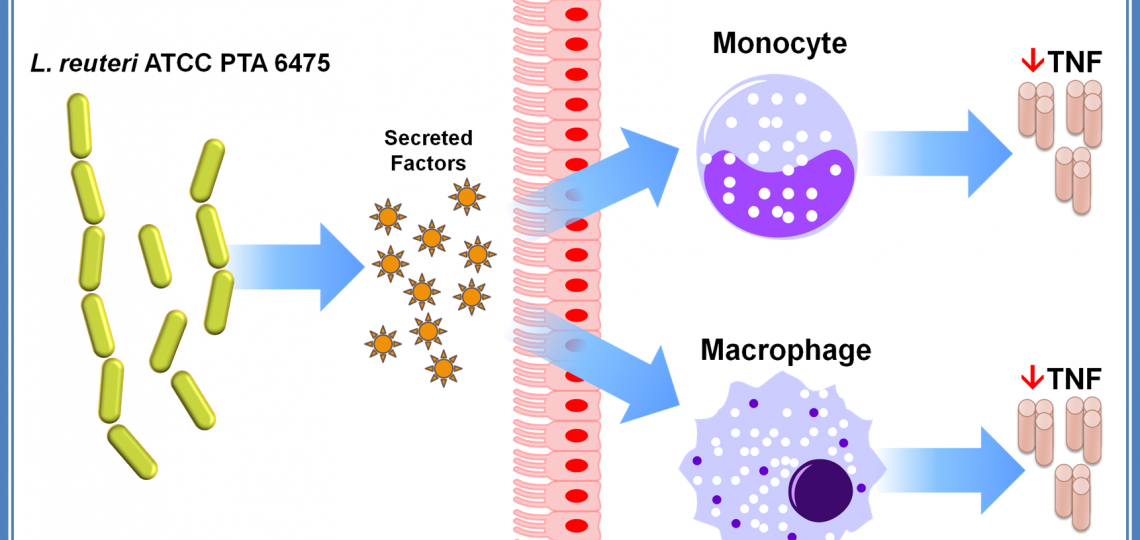Dr. Peera Hemarajata studied the functions of potential transcriptional factors and transporters that modulate the production of immunomodulatory compounds secreted from L. reuteri, both in the targeted and global approaches. He used targeted mutagenesis along with high-throughput technologies and bioinformatic analysis to explore the transcriptomes and proteomes of the bacteria, in order to identify the functions of potential target genes. Genetic modification of these genes might lead to novel strains of probiotics that can be safely administered to effectively prevent or even treat gastrointestinal inflammation in the near future.
Culture supernatant from Lactobacillus reuteri SUPPRESSES TNF production from monocytoid cells: Patients with Crohn’s disease have increased levels of TNF both in the actively inflamed colonic mucosal tissue and in the serum (1). Culture supernatants from probiotic Lactobacillus reuteri ATCC PTA 6475 potently suppresses TNF production in activated human acute monocytic leukemia (THP1) cells and primary monocyte-derived macrophages from patients having Crohn’s disease (2) However, the soluble factors mediating this TNF suppression have not yet been clearly defined (Figure 1).

Figure 1: Proposed mechanism of immunomodulation by secreted factors from L. reuteri ATCC PTA 6475, which results in decreased TNF production from monocytes and macrophages.
What We Discovered
We identified two genes involved in immunomodulation
1.Targeted approach: rsiR
• RsiR may modulate TNF-inhibitory histamine production through regulation of hdc cluster gene expression
2.Global approach: eriC
• Inactivation of eriC resulted in loss of TNF suppressive activity, decreased expression of genes in the hdc gene cluster and diminished amounts of TNF-inhibitory histamine
• EriC may play a role in relieving the inside-negative membrane potential that accumulates during histidine decarboxylation.
Summary And Conclusion

Figure 2








